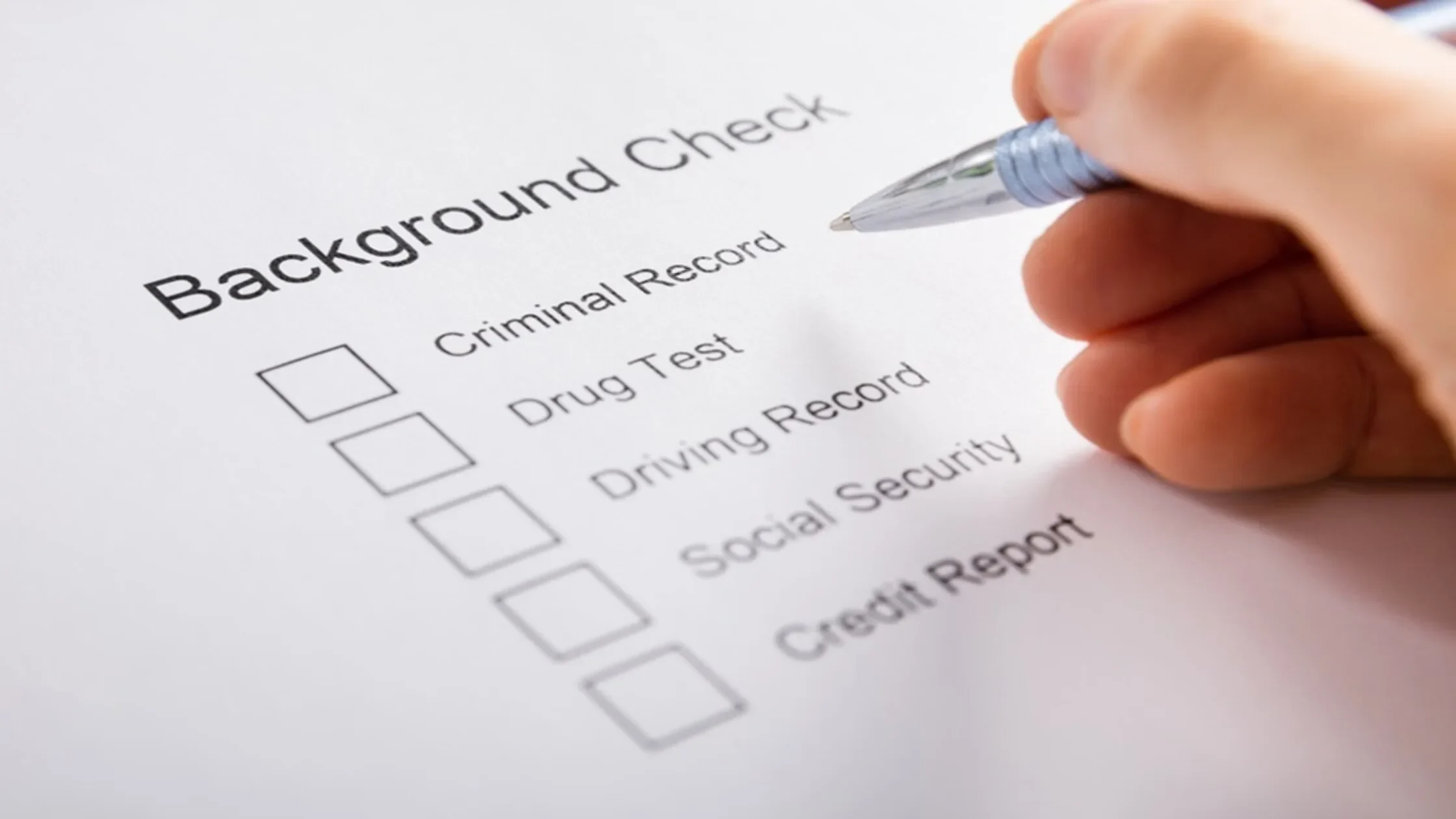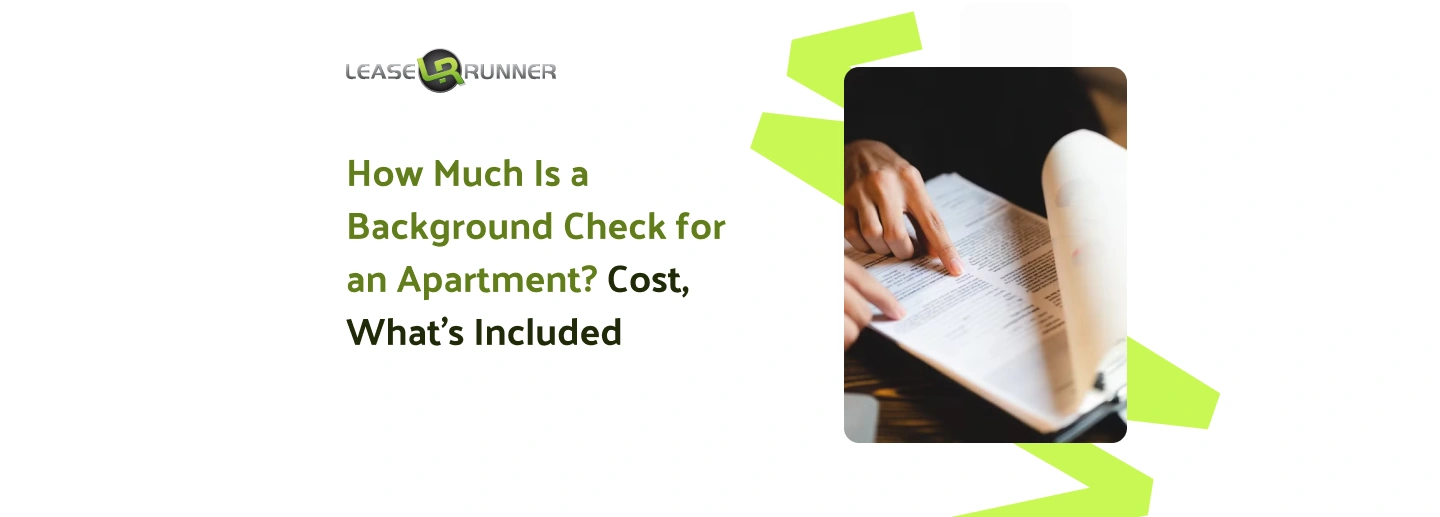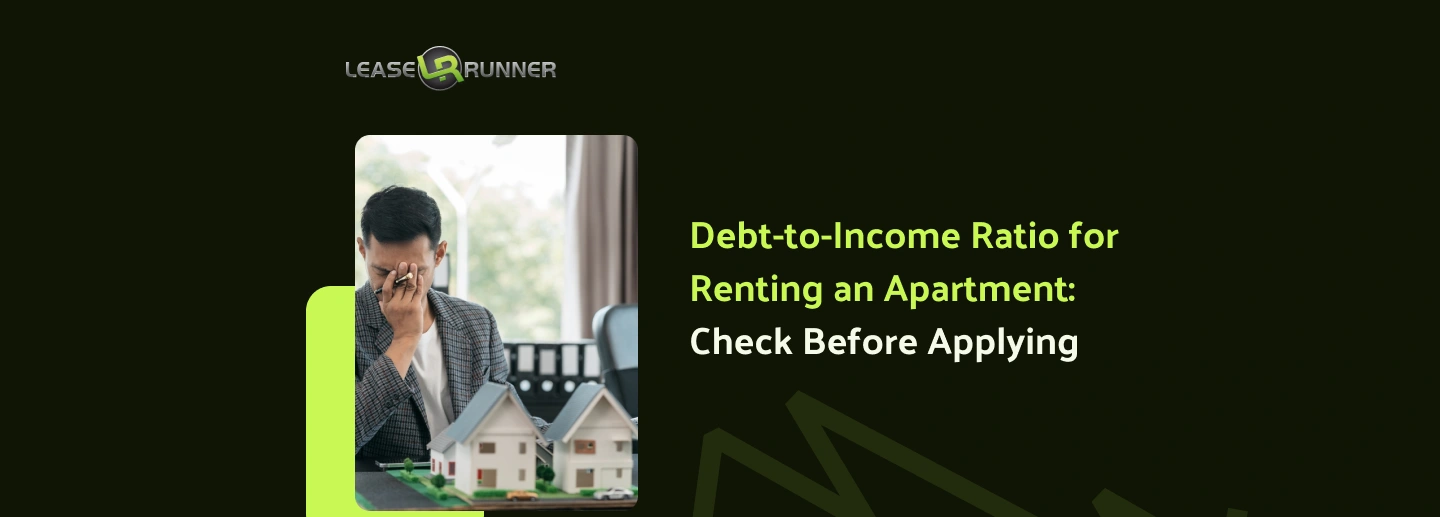Red flags in background checks are a critical concern for landlords and hiring professionals. When our team reviews applicant reports, we look for any signs that indicate potential risk, fraud, or history that could impact property security and peace of mind.
Knowing what causes a red flag on a background check helps us make informed decisions because the presence of these findings often means a deeper story, one that guides our rental or employment choices.
The following sections will explore why these warning signs appear, the areas of most concern, and LeaseRunner’s proven approach to identifying red flags efficiently and fairly for all parties.

What is a Red Flag on a Background Check?
First, let’s define what a red flag on a background check is so landlords know what to watch for during the screening process. A red flag is any data point or finding that implies risk, dishonesty, or unsuitability. It’s a signal, either minor or major, that something within an applicant’s history needs closer examination. Landlords and employers both need to be aware of the common red flags in background screening to mitigate risks.
These can include criminal convictions, inconsistent information, incorrect dates/job titles/responsibilities, financial mismanagement, and more. Red flags can range from minor issues (like clerical errors or yellow flags) to major deal-breakers (such as violent felonies or undisclosed criminal history).
Some issues are labeled as “yellow flag on background check” when they’re minor, such as inconsistencies that could be honest errors or a lack of social media presence. Yellow flags don't always lead to disqualification, but must be noted.
Imagine an applicant who claims multiple advanced degrees but cannot provide transcripts. If we detect falsified education credentials, that’s a major red flag in background checks.
The meaning of a red flag goes beyond just failing a check; it’s about context, relevance, and risk mitigation. We use every relevant factor, from online presence background check findings to reference responses, to make decisions that protect our properties and investments.
Identifying and understanding these red flags in background checks enables landlords to make decisions that align with their standards and requirements! By using processes like identity proofing and identity verification, LeaseRunner ensures every applicant matches who they claim to be, reducing the risk that comes with false or incomplete information.
Top 3 Major Red Flags That Can Cause You to Fail a Background Check

Landlords often ask, what are some red flags on a background check that could signal risk or ineligibility? The most significant red flags in background checks tend to fall into three categories. For LeaseRunner, these flags shape every approval or denial we make.
1. Criminal and legal issues
A primary reason individuals fail a background check lies in their criminal record or related legal problems. These flags include:
- Criminal convictions ranging from misdemeanors to felonies. Most critical are relevant convictions involving theft, violence, or fraud, which severely impact eligibility. The distinction between misdemeanor and felony matters is that felonies carry greater consequences.
Recognizing the significance of red flags in a criminal background check is crucial for making a fair and informed decision.
- Arrests and pending charges that remain unresolved can also raise concerns. Even if not convicted yet, pending legal issues indicate potential risk.
- Failed drug or alcohol tests in required screenings introduce serious doubts about reliability, especially for safety-sensitive roles.
- A poor driving record, including DUIs or multiple violations, risks liability, particularly for jobs requiring driving.
- Use of a false Social Security number is a direct sign of deception and is treated severely.
- The history of unpaid debts and civil lawsuits reveals financial mismanagement, which may reflect irresponsibility or untrustworthiness.
For financial matters, signs of financial mismanagement, such as open civil lawsuits or substantial unpaid debts, demand extra caution. To accurately assess risk, we routinely reference our HUD criminal background check requirements for compliance with the latest legal standards.
2. Lies and inconsistencies on an application
Honesty matters when making rental decisions. We spot red flags in background checks by identifying untruths or mismatched details.
- Employment history discrepancies, such as incorrect dates, job titles, or responsibilities, and sometimes completely undisclosed past jobs, may reveal attempts to hide job gaps or past terminations.
- Unverifiable information like fake degrees or falsified education credentials undermines trust and suggests someone is willing to mislead.
- Refusal to consent or refusal to provide written consent for the background check itself often signals anticipation of negative findings.
- Gaps without proper documentation for employment gaps raise suspicions unless adequately explained and supported.
Applicants who attempt to hide gaps or fabricate roles often leave a trail. Our verification process is designed to spot these signals. Even minor incorrect dates/job titles/responsibilities are reviewed for patterns or intent, because what makes you fail a background check isn’t just the error but the willingness to be dishonest.
In Colorado, tenant screening laws have recently changed to protect renters and limit the fees landlords can charge. As a landlord, you must accept a portable tenant screening report that compiles credit, criminal, and rental histories into one streamlined document. This makes screening more efficient, fairer, and easier to manage.
3. Performance and personal behavior
Landlords and employers watch for signs in how someone behaves or performs since behavioral factors often make the difference between approval and rejection.
- Negative references from previous employers or landlords flag poor reliability, undue conflict, or missed obligations. To get the full picture, landlords should learn the right questions to ask previous landlords to gain actionable insights about applicant behavior and reliability.
- Frequent job-hopping or frequent changes without clear reasons suggest instability and may annoy landlords or employers alike, which is considered a yellow flag on background check reviews.
- Previous terminations, especially when related to misconduct or performance issues, represent red flags about future behavior.
In today’s digital age, landlords might also consider negative social media activity as an indicator of a tenant's character or potential issues. Conversely, a no social media presence is often neutral but sometimes noted by landlords, as it limits insights into an applicant’s online behavior.
Understanding these common red flags in background screening can help landlords benefit by identifying risks early, while candidates improve their chances by being honest and transparent.
From a landlord’s perspective, helping tenants understand how to pass a background check for an apartment streamlines the rental process. Knowing common red flags and preparing key documents can improve approval chances. Our detailed guide offers practical tips that benefit landlords and applicants alike.
How Landlords Should Handle Red Flags in Tenant Screening?

Spotting red flags in pre-employment screening is only part of the process. What matters most is how we react to troubling findings. Here’s how we do it at LeaseRunner.
1. Thorough Review and Verification
The validity of every concern starts with careful review. Our property owners benefit from proven systems that cross-check:
- Document authenticity, including diplomas and degrees, using methods to detect fake pay stubs.
- Clear explanations for each employment gap and matching claims with evidence.
- Careful assessment of criminal records and exploration of relevant convictions (theft, violence, fraud) in context.
- Cross-reference to online presence background check findings for hints about professional reputation.
2. Consider the Whole Applicant Profile
A single red flag in background checks rarely tells the whole story. We weigh the overall profile length of rental stability, credit history, recent vs old offences, to make a fair determination.
If an applicant has demonstrated improvement over time, strong references from previous landlords or supervisors may offset old infractions. We dig deeper when a yellow flag on background check issues surfaces, seeking understanding over instant disqualification.
3. Give Applicants a Chance to Explain
For real transparency, we ask applicants to explain any discrepancies directly, whether it's lying about employment dates or unexplained documentation for employment gaps. Written statements provide context and help us see beyond the static data.
When we uncover undetailed periods or mismatched facts, the applicant’s response is recorded and considered throughout our decision cycle. Addressing inconsistent information this way is a core LeaseRunner practice. To better understand the implications and how to verify claims or references, consult our guides on questions to ask tenant references.
4. Follow Fair Housing Laws
Fair Housing laws and similar state regulations strictly prohibit discrimination based on protected status. We focus solely on red flags directly relevant to tenancy risks, consistent with HUD criminal background check requirements and anti-discrimination policies.
For instance, blanket denials based on non-serious misdemeanor vs felony distinctions or minor issues violate these rules. Our denial policies, including for denial of housing to felons, are carefully structured to be just and lawful.
5. Use Objective Criteria and Policies
Decision-making needs consistency and clarity. We apply written standards for evaluating red flags in background checks, such as thresholds of offense recency, explanations for employment gaps, and the relevance of discovered facts.
To maintain fairness and reduce bias, all screenings follow the same rigorous standards each time. Utilizing tools like portable tenant screening reports helps standardize evaluations and avoid subjective judgments based on unclear or forgotten facts.
6. Weigh Risk vs. Mitigating Factors
Assessing risk means considering every detail, including:
- Severity of convictions
- History of employment performance
- References and stability factors
If a red flag is outweighed by positive traits, we document our rationale and move forward. For example, a past conviction might be offset by long-term employment and positive references. We document positive traits such as financial recovery from financial mismanagement or responsible behavior despite earlier arrests.
7. Document Decisions Thoroughly
Comprehensive recordkeeping tracks every finding, applicant statement, and final decision. When we use income verification, the process is logged for full legal and audit protection. Transparency ensures our actions remain defensible and fair.
For those with more complex screening needs, such as handling applicants with eviction histories, see our guide on how to rent with an eviction on your record to navigate tough cases fairly and legally.
By following these steps, landlords can responsibly manage red flags on a candidate's background report while supporting fair access to housing and protecting their investments. This thoughtful, data-driven process turns potential risks into informed opportunities for successful tenancy.
Legal Considerations for Landlords
Effectively recognizing red flags on a background check requires landlords to follow strict legal guidelines from start to finish. Failure to do so can lead to costly lawsuits and regulatory penalties. Understanding and complying with laws ensures a fair, safe rental process for everyone involved.
1. Fair Housing Act and Anti-Discrimination Laws
The Fair Housing Act (FHA) and related state laws mandate that all applicants receive a fair evaluation, with no decisions based on protected status such as race, religion, gender, or familial status. Using background information to discriminate violates these laws and invites legal risk.
Landlords must apply objective criteria consistently, avoiding biases when assessing criminal records, including undisclosed criminal history or violent felony mislabeling.
Compliance includes understanding the difference between misdemeanor vs felony, with felonies often carrying more weight but still requiring careful case-by-case review. Landlords should consider how relevant convictions (theft, violence, fraud) relate to the tenancy without unfairly excluding applicants based on outdated or minor offenses.
The team at LeaseRunner regularly consults HUD criminal background check requirements to align screening policies with the latest protections and fair housing standards.
2. Privacy and Data Handling Responsibilities
Background checks contain highly sensitive personal information, including criminal records, financial mismanagement history, and inconsistent information. Handling this data demands stringent privacy measures.
LeaseRunner ensures data security by training staff on confidentiality and restricting access to only authorized personnel. Secure storage and transmission protocols prevent unauthorized misuse of applicant information. Landlords should inform applicants clearly about what data is collected and how it will be used, ensuring transparency and trust.
3. Compliance with FCRA (Fair Credit Reporting Act) and EEOC Guidelines
The Fair Credit Reporting Act (FCRA) requires landlords to obtain written consent before running any background or credit checks. They must provide clear disclosures about the screening process, including which reports will be obtained and any potential costs.
If findings prompt denial, the landlord must follow adverse action procedures, notifying the applicant and providing a copy of the report so applicants can dispute inaccuracies. Refusal to provide written consent usually stops the screening.
The Equal Employment Opportunity Commission (EEOC) provides guidelines on how to treat criminal information fairly. Employers and landlords must avoid making decisions solely based on a criminal record, instead considering context to prevent discrimination.
Landlords must evaluate what makes you fail a background check thoughtfully. Blanket bans on applicants with any record often violate EEOC recommendations. Proper documentation, including verified documentation for employment gaps, and accurate information, reduces the chances of inconsistent information or errors that might cause unfair rejection.
Final Thoughts
Every landlord and employer faces pivotal decisions in interpreting red flags in background checks. Knowing what causes them and how to respond allows us to act responsibly, ethically, and legally. LeaseRunner leverages robust screening technology, documented policies, and thorough applicant review so rental decisions are fair and transparent.
We also understand the need to address background screening disqualifiers for applicants who may have a complex history. From criminal records to employment inconsistencies, frequent job changes, refused consent, or social media issues, our process consistently weighs risk against context, aligning with compliance mandates.
Recognizing, investigating, and documenting each warning sign ensures properties are safe and tenants are high-quality while always respecting fair housing and privacy standards.
FAQs
Q1. What Causes a Red Flag on a Background Check?
A red flag on a background check is caused by findings that raise concerns or suggest risk, such as criminal records, inconsistencies in employment history, financial mismanagement, dishonesty about qualifications, or negative personal behavior.
For an employer, understanding the top red flags in pre-employment screening is essential for protecting the company. These signals indicate potential problems that may affect suitability for tenancy or employment.
Q2. What Makes You Fail a Background Check?
Failing a background check usually happens due to major red flags, including relevant criminal convictions (especially theft, violence, or fraud), lying on applications, undisclosed criminal history, refusal to consent to screening, frequent job changes without explanation, poor driving records, or negative references that suggest unreliability.
For those with criminal records, it's important to understand the common red flags in a criminal background check to address them proactively.
Q3. Do All Landlords Conduct Background Checks?
Not all landlords check backgrounds, but many do. They want to protect their property and tenants. These checks show if someone may have a criminal past, money trouble, or lied on their forms. The depth of checks varies by landlord.
Q4. How long does a background check take?
Background checks usually take 1 to 3 days, but can take up to a week. Fast reports from credit bureaus or criminal databases show up quickly. Checks needing employer or past landlord contact may take longer. Missing details can slow it down.
Q5. Why do landlords conduct background checks on tenants?
Landlords check backgrounds to avoid renting to risky tenants. They check credit to see if bills get paid on time, criminal history to keep others safe, rental history for past evictions or late rent, and jobs to confirm income. This helps them pick tenants who pay rent and care for the place.







